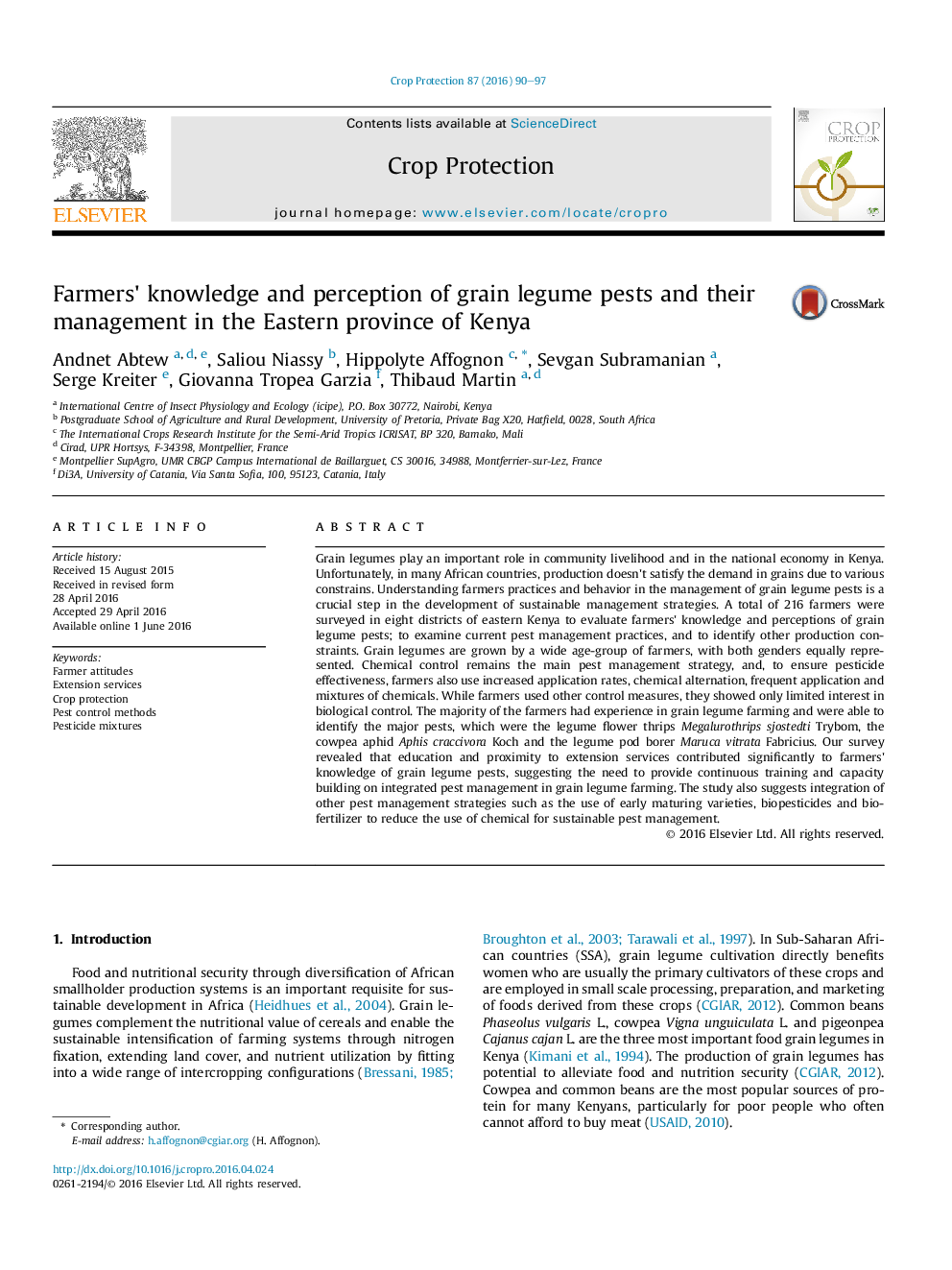| Article ID | Journal | Published Year | Pages | File Type |
|---|---|---|---|---|
| 4505558 | Crop Protection | 2016 | 8 Pages |
•Grain legumes are important crops in East Africa but their production is seriously affected by several pests.•Farmers rely on various methods mainly cultural practices, chemical control with limited use of biological control.•IPM is a potential solution but other factors such as education and location of extension services might also play a role.•The study stresses the need for more extension services and technology transfer campaign to improve farmers’ knowledge.
Grain legumes play an important role in community livelihood and in the national economy in Kenya. Unfortunately, in many African countries, production doesn't satisfy the demand in grains due to various constrains. Understanding farmers practices and behavior in the management of grain legume pests is a crucial step in the development of sustainable management strategies. A total of 216 farmers were surveyed in eight districts of eastern Kenya to evaluate farmers' knowledge and perceptions of grain legume pests; to examine current pest management practices, and to identify other production constraints. Grain legumes are grown by a wide age-group of farmers, with both genders equally represented. Chemical control remains the main pest management strategy, and, to ensure pesticide effectiveness, farmers also use increased application rates, chemical alternation, frequent application and mixtures of chemicals. While farmers used other control measures, they showed only limited interest in biological control. The majority of the farmers had experience in grain legume farming and were able to identify the major pests, which were the legume flower thrips Megalurothrips sjostedti Trybom, the cowpea aphid Aphis craccivora Koch and the legume pod borer Maruca vitrata Fabricius. Our survey revealed that education and proximity to extension services contributed significantly to farmers' knowledge of grain legume pests, suggesting the need to provide continuous training and capacity building on integrated pest management in grain legume farming. The study also suggests integration of other pest management strategies such as the use of early maturing varieties, biopesticides and biofertilizer to reduce the use of chemical for sustainable pest management.
